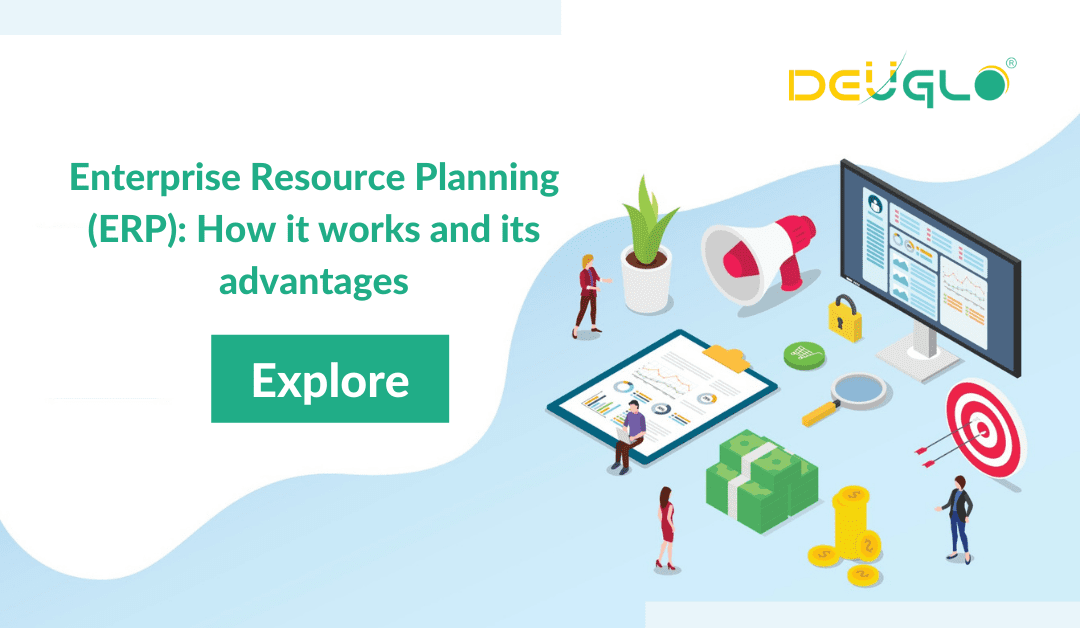How does your company manage a large amount of information corresponding to each sector? In an increasingly saturated and competitive market, having efficient business management supported by an Enterprise resource planning (ERP) system is a great competitive advantage for companies, and having optimal management is crucial for the survival of all companies.
But, is it really necessary to hire a management system? Yes, regardless of the size of your company.
What is an Enterprise resource planning (ERP) system?
Enterprise Resource Planning (ERP) is basically a business management system. It is a technological tool that aims to integrate and automate the main processes and data of the company in a single platform, facilitating data management, and organization of the company.
Some of these processes include:
- Inventory management.
- Control and commercial and sales management.
- Financial management.
- Integration with tax issuance.
- Sales management.
- Reports.
The goal is to centralize all this information in a place from where all sectors can access and manage their data.
This is an important point because, despite the fact that companies are divided into departments, they, in turn, depend on each other and act together. Therefore, the more synchronized and automated they are, the more efficient will be the execution of the activities and the productivity of the company.
How does an Enterprise resource planning (ERP) system work?
As I have explained previously, the Enterprise resource planning (ERP)system integrates activities and automates the company’s processes. This, in addition to facilitating management, helps to eliminate the various parallel control programs.
These systems are generally available in modules, one for each area of the company. Some are common to all segments, such as invoices and payroll, but each segment has its peculiarities and receives specific ERP modules.
Example of operation of an ERP system:
As an example, let us take a company that is dedicated to the manufacturing and transportation of custom furniture. Let’s see how the process can be integrated from the order by the customer to the delivery of the product:
- Once the customer places the order, the seller registers it in the system.
- The production sector is notified that the furniture requested by the client needs to be produced.
- The supply management sector is also advised to carry out inventory control of materials required for production.
- If it is necessary to replace the stock, the supply sector will be in charge of this activity, and the financial area will be informed about the expense for the acquisition of the raw material.
- The financial sector will also receive an alert that it must charge for the item sold.
- Then the accounting will receive information on costs and billing.
- Those responsible for logistics will be informed about the order so that they can schedule the delivery, taking into account the time required for manufacturing.
This is how an ERP system works from beginning to end. All sectors of the company have access to what is happening and can follow all the steps within the company in real-time.
What are the benefits of an ERP system for companies?
An ERP system has the objective of helping corporate administration and management contributing to business growth. With all the sector records and data in one place, processes that used to take longer are automated, ensuring greater team flexibility and information security, as well as greater control over what happens in the business.
It is known that the number of small and medium-sized companies that lose control of management and end up in debt is high. This happens, often, due to the lack of information in the team itself, that they do not care too much about internal management or they do not know how to do it correctly.
These types of small internal errors can bankrupt any company if they accumulate, and this is why we always recommend the use of an ERP system within companies.
In addition to the ease of managing and organizing data, the use of the management system guarantees more security, and agility in the registration of information and process control. However, the most important thing is to choose an ERP system that provides efficiency and intelligence to management processes.
Some of the benefits that the ERP system to businesses are:
- Remote access to the system,
- Security of the information,
- Less paper and more efficiency,
- Financial control in real-time,
- Updated inventories,
- Quick issuance of invoices,
- Assertive communication with clients,
- Sales efficiency,
- Costs reduction,
- Effectiveness in tax management,
- Competitiveness.
What are the main ERPs on the market?
Currently, the integrated business management system is increasingly common in the market, with several ERP options available, each with its advantages and disadvantages that vary according to the offer of features and price.
Below is a list of the best ERPs on the market:
- SAP
- Oracle
- TOTVS
- ERP for e-commerce
- Blue ERP account
- SIGE Cloud ERP
- B ERP Vendor
- Microsoft Dynamics
- Eccosys ERP
We, at Deuglo Infosystem Private Limited, are a team of ERP experts based in Bangalore, Karnataka, India. We will evaluate your business, identify your needs, and choose the applicable ERP system for you. Speak with us today and we’ll set up the right ERP model for your company. We will aim to expand your business, improve its effectiveness, reduce cost, and increase your revenues with our advanced technologies.

